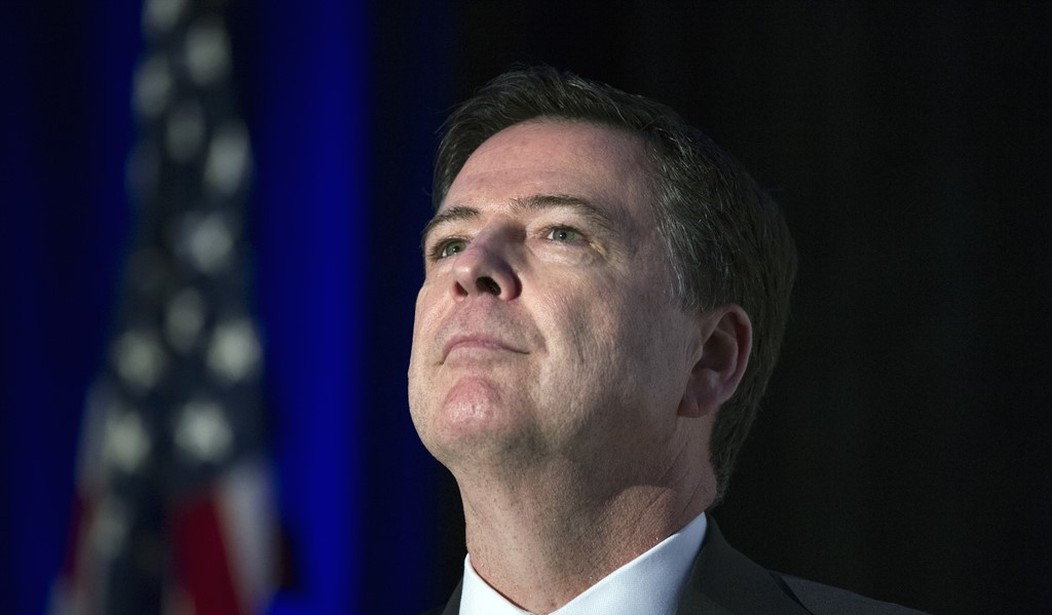As a legal matter, this seems straightforward. The FBI’s gotten too loose with sharing Americans’ data in violation of its own “minimization” rules and you’d better believe Jim Comey will be asked about it the next time he testifies before Congress. If he testifies before Congress.
As a political matter, it’s more complicated. Why did agents access the info and, in some cases, share it with people who weren’t supposed to see it? Were they spying on Americans for reasons unrelated to national security or were they scrambling to foil what they thought were imminent terror attacks? If the latter — and that’s a big if — this is a sort of high-tech version of the old “ticking bomb” scenario in debates over torture. When is it appropriate for the government to break its own rules if it reasonably believes it can save innocent lives by doing so?
[A] ruling declassified this month by the Foreign Intelligence Surveillance Court (FISA) chronicles nearly 10 pages listing hundreds of violations of the FBI’s privacy-protecting minimization rules that occurred on Comey’s watch.
The behavior the FBI admitted to a FISA judge just last month ranged from illegally sharing raw intelligence with unauthorized third parties to accessing intercepted attorney-client privileged communications without proper oversight the bureau promised was in place years ago…
FBI officials acknowledged there have been violations but insist they are a small percentage of the total counterterrorism and counterintelligence work its agents perform.
Almost all are unintentional human errors by good-intentioned agents and analysts under enormous pressure to stop the next major terror attack, the officials said.
In which “ticking bomb” situations would the FBI need to share raw intel with private parties, “ranging from a federal contractor to a private entity that did not have the legal right to see the intelligence”? And when they say “almost all” violations were made in good faith, to protect the public, what percentage are we talking about? Ninety percent? Fifty-one?
This same declassified FISA ruling also held that Obama’s NSA conducted improper searches of “upstream” surveillance data on Americans for years, disclosing the practice only a few weeks before last year’s election. The NSA’s methods are confusing but this Times piece from April, published shortly after the FISA ruling was published, does a nifty job of explaining. “Upstream” data comes from messages to or from foreign citizens collected by U.S. telecom companies; the point, per Section 702 of the FISA Act, is to let the NSA track correspondence involving a foreign surveillance target without needing a warrant. What the agency was also doing, though, is reading messages between Americans and foreign persons that contained search terms about the foreign target, like his name or email address, even if the message was neither to nor from the target himself. The NSA has now discontinued that practice of harvesting “about” intelligence — under Section 702, at least. They have other means of getting a lot of the same information.
In any case, like everything else in modern politics, 98 percent of the interest in these stories on both sides will be pure partisanship. To the left they’ll be nothingburgers, proof that even a well-intentioned administration like Obama’s is destined to make mistakes with the awesome powers of Total Information Awareness, and in any case we should be talking about Trump’s problems, not Obama’s. To the right they’re proof that, for all the heavy breathing about Trump’s supposed impropriety in leaning on Comey over Mike Flynn, Saint Barack’s natsec bureau was guilty of far more serious malfeasance in violating the public’s privacy rights. We should be talking about Obama’s problems, not Trump’s. We’ll see what Comey has to say when Republicans grill him on all of this.








Join the conversation as a VIP Member